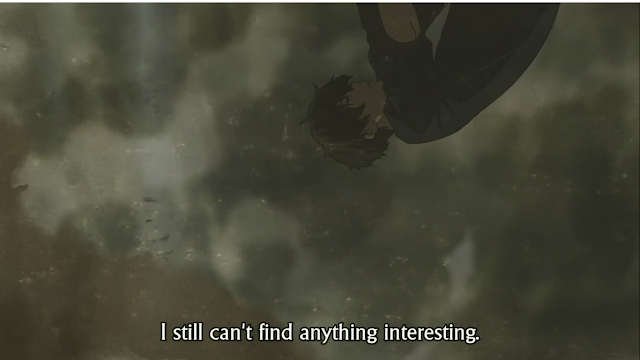The Joker: Endgame
 |
| Image courtesy of crimespreemag.com |
I still haven't read the Batman end of Endgame, but I'll say this with the confidence of a planet in a field of dandelions: though it follows the Night of Owls, Death of the Family, Zero Year et.al., The Joker: Endgame stands out by a mile in the way Snyder's storytelling has, to my eyes, grown. Snyder and his team has injected more depth in The Joker's character in an amazingly short amount of time and pages, given that the compilation is riddled with side stories apart from the event itself. It collects Batman #35-40, Arkham Manor: Endgame #1, Batgirl: Endgame #1, Batman Annual #3, Detective Comics: Endgame #1 and Gotham Academy: Endgame #1.
Spoilers ahead, somewhat.
This time brought out as the Pale Man who suspiciously appears in all of Gotham's historical tragedies, The Joker has upped his abnormality by having had access to Dionesium sometime after the events of Death of the Family. Because of this Dionesium, the comic's version of water from the fountain of youth, he has been able to heal in an alarming rate. This is also responsible for the youth of Ra's al Ghul, among other characters. Snyder exploits this literal deus ex machina to a very fruitful depth as well as extremely coherent breadth, and slyly inserts all the implications of naming something after the Greek god associated with tragedy, rebirth, and frenzy. The perversion of this chemical is the motherfucker version of all Joker toxins, which The Joker used to bring four of the Justice League's most powerful on Batman's head. The Joker. Jokerized. The. Justice. League. Which, of course, obliterated the motherfucker version of Batman's thrasher suit, which Batman admits ate up more money than the military expenses of 60% of countries in the world, mainly because it is equipped with sensors and mechanisms that could anticipate an attack from The Flash. Anticipate. An attack. From The Flash. In this fight Snyder explicitly answers, tongue-in-cheek perhaps, who wins whenever Batman and Superman fight: No one. No. One. I am sounding like a moron here, and that's the beautiful thing about Endgame: Snyder's deepening and tightening of The Joker character with mythology brilliantly utilizes the superhero genre's awesomeness. It's like eating bacon and drinking from the fountain of youth afterward. So that you can live forever to eat bacon.
This compilation is about a whole lot of things, but to me, mostly it's about how The Joker, having had Dionesium, had to lift up his game with Gotham to heights and evil usually reserved for the gods. (In so doing the story utilizes the characters from Owls and the Family, as well as the majority of the roster of Batman villains and the patients of Arkham Asylum, and the Justice League.) The Joker wants to end it all, or so it seems, with one final joke: that the travesty that is the stage should end. The machinations he set in place are implicitly immense, for (as an homage to The Joker of old) he planned to gas the entirety of Gotham to turn them into himself, and then within 24 hours, die. As stated, this toxin is far more potent because it is a complete perversion of the Dionesium. The Joker, one having been injected with the stuff of immortality, creates an entire populace on the fast road to terminal mortality. It is his final joke, and it is truly a joke: with no stage, there would be no performance. Whereas in the Family the Joker's plan was to lift the Bat-King to heights the game is worthy of, in Endgame he is, if the title is enough to suggest it, ending the game itself.
Batman of course stopped this, as he always does, but this time with a heavy cost: the cost of believing in death, and in effect, problematizing what it means to be Batman and do what Batman does to begin with. If he truly believed in death, then Batman would die. In the final chapters Alfred's daughter, Julia, asked why the Batman did not choose to protect himself using any or all of the substances capable of healing or lending youth or immortality. Alfred replies, in the most sublime application of Nietzsche in a comic book I have ever seen, that this is Batman's flaw as well as his immortality - finally choosing to be mortal, and having his whole life chosen to be mortal and unprotected was Batman's way of telling people to bravely live and laugh at the void. In the penultimate scene deep beneath Gotham Batman asks The Joker for forgiveness, while The Joker is unsuccessfully scrabbling towards a pool of Dionesium. Instead of scrabbling towards the healing pool himself, Batman asks for forgiveness, because it was only then that Batman realizes he was mistaken: he had to believe in death and ending. Only then will he truly be. Only then will he stop being a costume-wearing joke. And only then will he stop the joke that both he and The Joker have been, for 75 years in our time, been enacting as a dance. His last line delivered while splayed, bloody, broken, and beside The Joker, is "I'm just going to rest here a little while with my friend." For 75 years, it is only The Joker who is Batman's friend. Because without death and tragedy, immortality and happiness mean nothing.
That is why Batman's final note to Alfred just contained one word: "HA."
Not like The Joker's "HA HA HA HA HA" strewn all over a panel. Just one word. Just one word that separates mortal immortality from evil, just one word that separates transcendence from damnation, just one word showing the difference between meaning and meaninglessness, just one word to show that all comedy is tragedy, especially when this exceptionally done.


Comments
Post a Comment